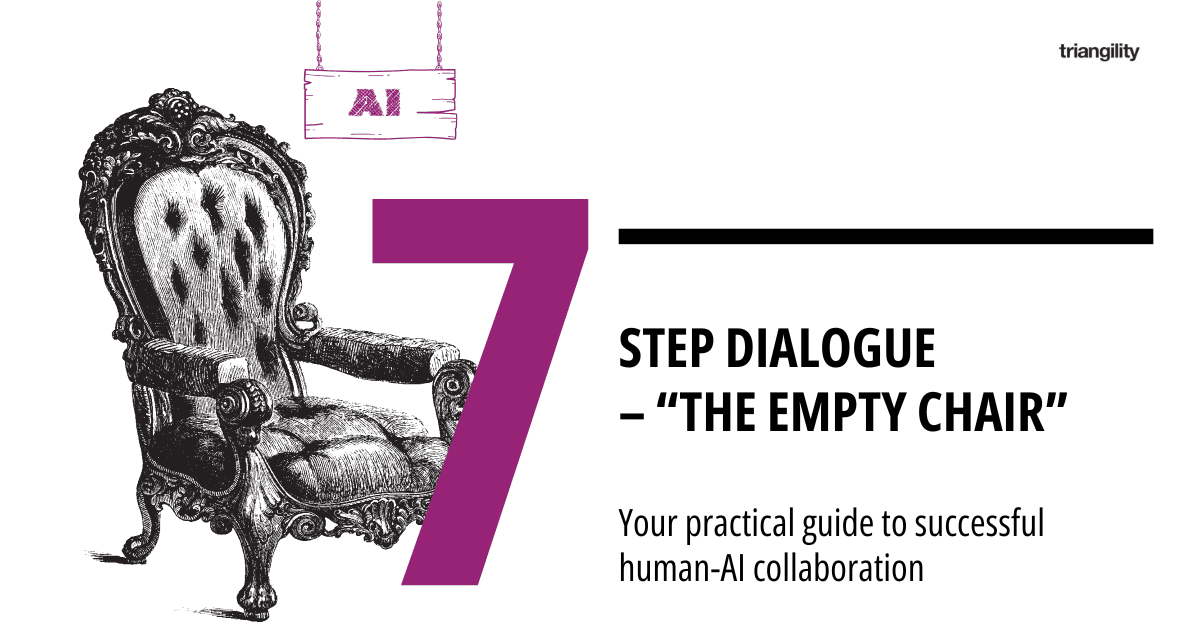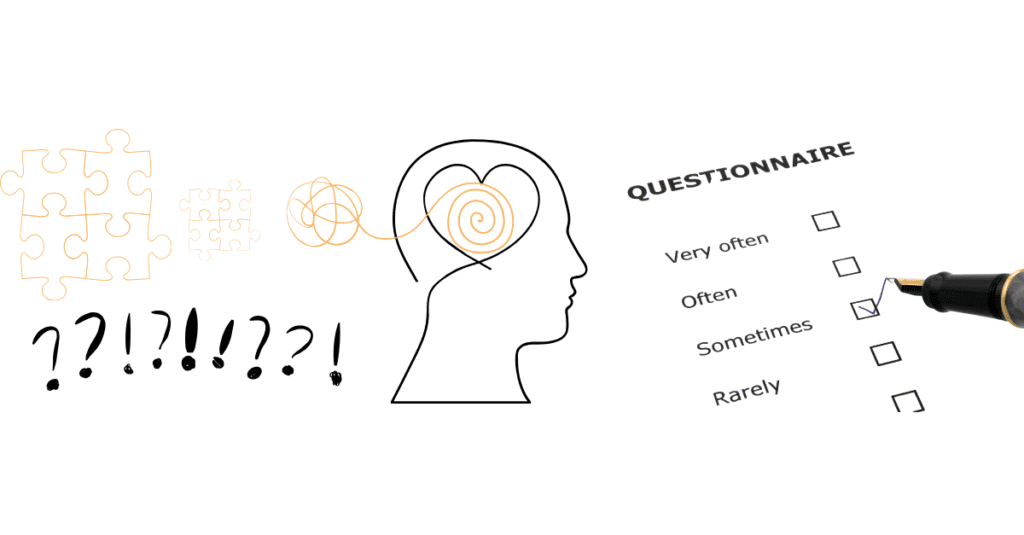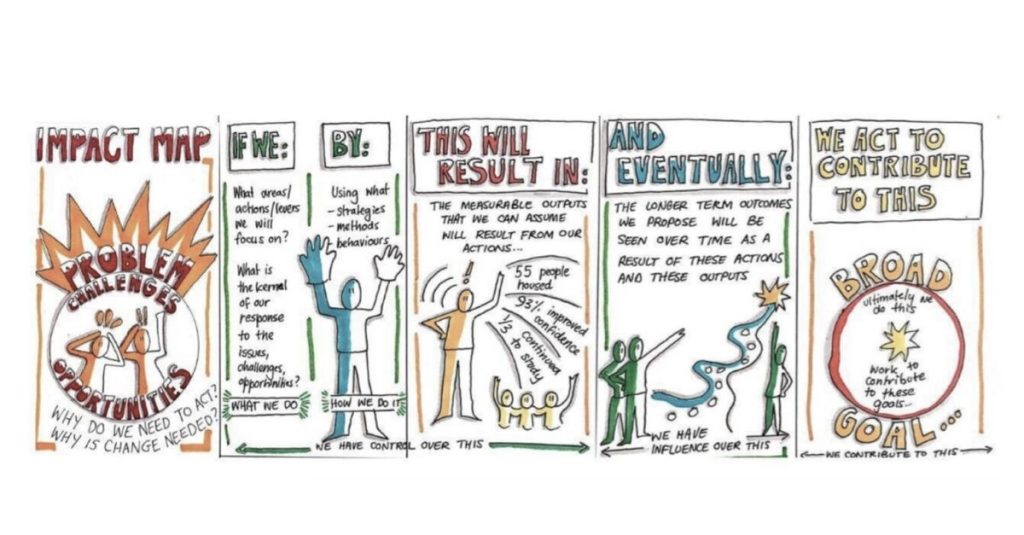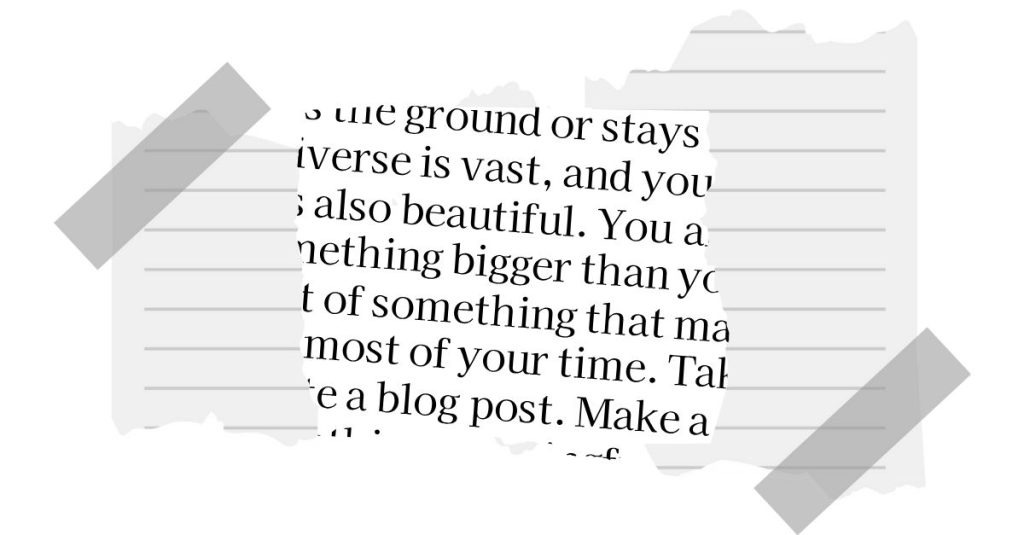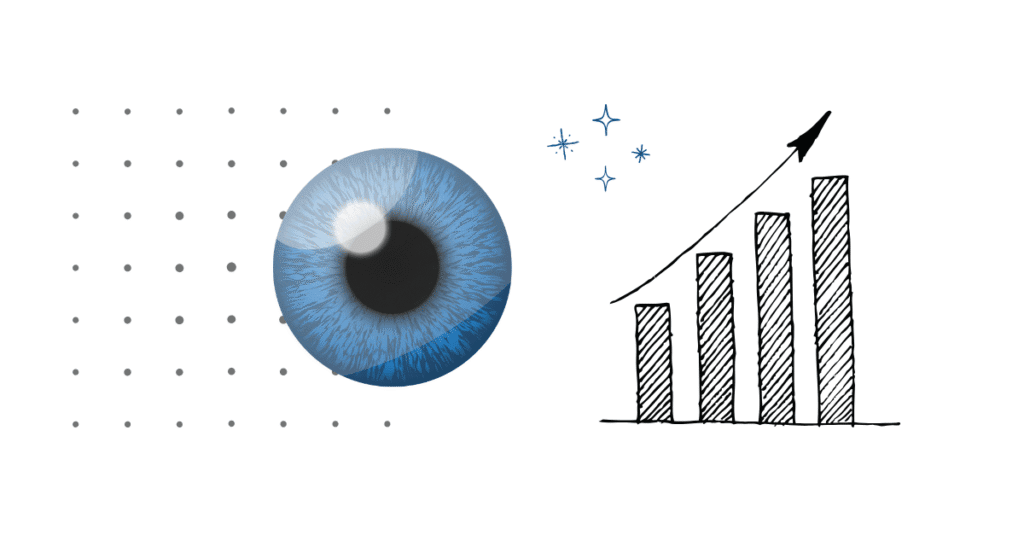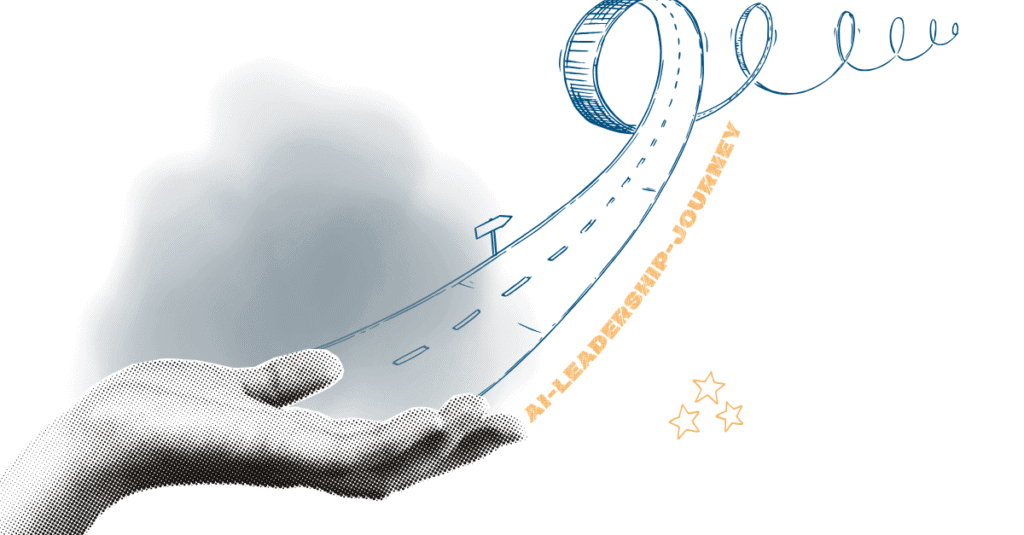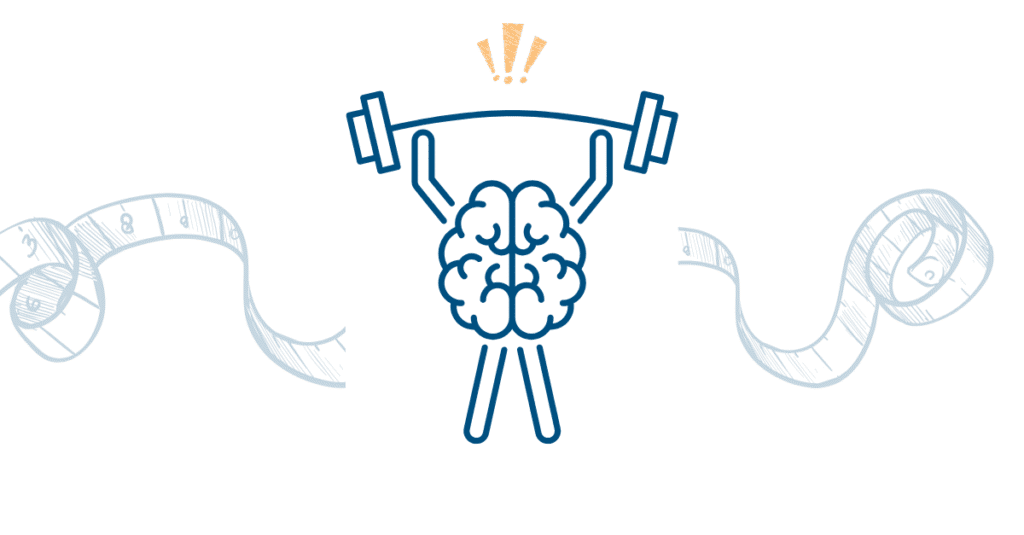How to use AI not just as a tool, but as a strategic partner—and make better decisions in the future.
Complete practical guide to successful human-AI collaboration
The challenge: 95% of all companies use AI the wrong way—as a passive response engine instead of an active dialogue partner. The result: weaker management decisions and cognitive decline among executives.
The solution: A scientifically based 7-step dialogue process that combines human intuition with AI analytics to create an unbeatable combination.
Your take-aways:
- The concrete 7-step process for your next strategy meeting
- Why ‘automation bias’ destroys your leadership quality
- The new framework: System 0 (AI) + System 1&2 (human being) = superpower
- Practical implementation tips for immediate use
The empty chair – an interesting anecdote to start with
Imagine you are sitting in your next strategy meeting and there is an empty chair at the table. With a small sign saying “AI.”
Sounds crazy? Admittedly, it’s not at all these days.
Robert Schaffner, our AI trainer and thought leader in human being-machine collaboration, often tells this anecdote about an experiment at a leader offsite. An empty chair, a sign that says “AI,” and a decision: AI is not used as a tool, but treated as a full-fledged conversation partner.
Instead of asking AI for quick answers or data analysis, the team asked other questions:
“What assumptions are we making right now without realizing it? Draft a counterproposal to our plan. What are we systematically overlooking?”
System 0 meets systems 1 and 2: The new intelligence partnership
To understand why this approach is so powerful, it helps to look at the different “thinking systems” that meet in this context.
Since Daniel Kahneman, cognitive research has recognized two human thinking systems:
- System 1: Intuition, gut feeling, quick, automatic reactions
- System 2: Analytical mind, conscious, logical problem solving
Researcher Pietro Gagliano now adds System 0 – the way AI “thinks”: a vast network of patterns and statistical correlations, without consciousness, but with the ability to recognize connections that escape the human brain.
The strategic challenge for modern leaders is to orchestrate these three systems optimally. Neither AI nor human being is superior – it is the clever combination that makes the difference.
The hidden danger: when support becomes dependence
But this is also where the danger lies, which many leaders underestimate: creeping cognitive atrophy.
Think of pilots who lose their manual flying skills through excessive use of autopilot. Or think of the documented cases of doctors who overlook important symptoms due to blind trust in AI diagnoses.
The philosopher Martin Buber would have put it this way: if human beings treat AI as “it” (a mere tool), their own abilities atrophy. If they treat AI as “you” (a dialogue partner), they remain mentally agile and even grow beyond themselves.
The difference between delegation and dialogue
Delegation looks like this: “AI, analyze these sales figures and give me three recommendations for action.” You get an answer, nod, done.
Dialogue sounds different: “AI, analyze the sales figures and show me patterns that I might overlook. What assumptions am I making about our customers? And now argue against my favorite strategy.”
In dialogue, human beings remain the active thinkers. AI becomes a sparring partner who challenges, not an assistant who does the thinking.
Why now? The urgency of rethinking
The next few years will determine which leaders remain relevant in the AI era. It’s not about who can use AI the fastest. It’s about who masters the art of human-AI dialogue.
Companies that understand this change are already reporting:
- Better strategic decisions through the combination of AI analysis and human wisdom
- More innovative solutions through the creative tension between human beings and machines
- More resilient teams that sharpen their cognitive abilities instead of losing them
We observe this transformation every day: Leaders who have the courage to use AI as a thinking partner not only make better decisions—they also develop a new quality of leadership.
The two hands of innovation: Human beings and machines in harmony
Alan Watts once spoke of the “two hands of God”—opposites that define and complete each other. This is exactly what we are now experiencing with human and artificial intelligence.
With its perfect, emotionless logic, AI highlights what makes human beings unique: intuition, creativity, the ability to empathize, and above all, the responsibility for decisions that go beyond facts and figures.
The next steps: from concept to practice
The empty chair in Robert Schaffner’s experiment became a symbol for a new kind of leadership. A kind that does not fear technology, but also does not blindly trust it.
Three concrete ideas for putting this into practice:
- Start small: Invite AI to the next problem-solving session as a challenger.
- Establish the counter-question: After every AI analysis, ask: “What doesn’t AI know? What can’t it understand?”
- Document the learning curve: Record where AI excels and where human intelligence remains irreplaceable.
Free download package:
“The 7-Step Dialogue: Complete Implementation Guide”- Detailed process instructions with timelines
- Templates for AI prompts and role definitions
download your 7-step dialogue for free!
Further reading:
- Kahneman, D.: “Thinking, Fast and Slow” (System 1 & 2 theory)
- Carr, N.: “The Glass Cage: Automation and Us” (automation bias)
- Buber, M.: “I and Thou” (philosophical foundations of dialogue)
Materials:
7-step dialogue template (printed or digital)
Pens and Post-it notes (if conducted in person)
Time:
45-60 min
Participants:
3-6 leaders + facilitator
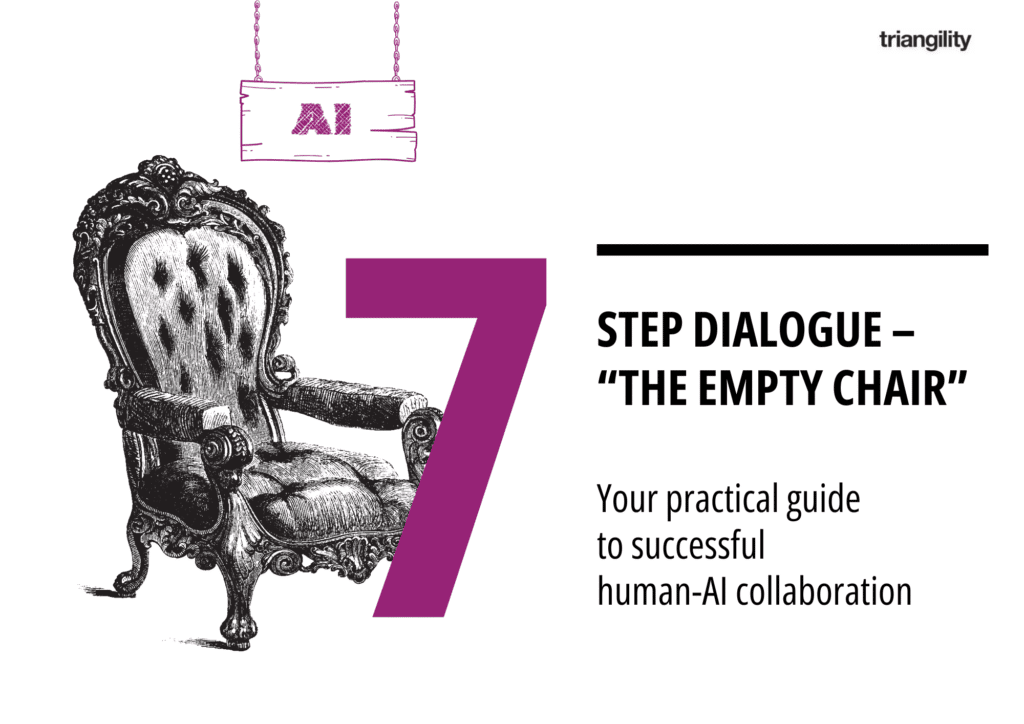
Delve deeper into the topic with our training course:

Leverage artificial intelligence with our AI for managers training

